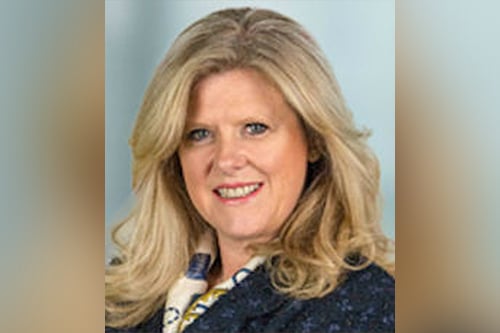

Throughout the insurance sector, 2019 was a year of challenges and opportunities and 2020 is promising to be more of the same. Recapping the key moves within the broking sector that occurred throughout the year, Ailsa King (pictured), chief client officer, UK & Ireland at Marsh outlined to Insurance Business how 2019 was a year of tremendous change and opportunity for the broker, with the acquisition and integration of JLT.
Turning her attention to the wider broking sector, King stated that 2019 was a year of consolidation and disruption which was not just created by the acquisition of JLT. New players emerged, she said, and technological advancements continued to present both challenges and opportunities for brokers.
One of the most notable challenges for the broking community in 2019 was keeping up with the speed of technological change within the sector, both in terms of how it impacts their businesses and also how they interact with and manage their clients.
“The insurance industry has a reputation for being behind the technology curve – and not without good reason – but pockets of innovation are coming together,” King said, “and we’re now seeing industry-wide change. I expect to see the adoption of new technologies and ways of working to accelerate in 2020.”
An exciting development within the broking sector over the course of 2019, she said, was data coming of age. Through the emergence of new and more cost-effective technologies, the broking sector was increasingly able to use data as part of its placement strategies across the client spectrum, from multinational organisations to small enterprises.
“This is an area in which Marsh is investing heavily,” she said, “notably in Marsh Commercial in the UK. Due to previously prohibitive costs, only the largest firms were able to adopt analytics into their risk management functions. Now, businesses of all sizes can benefit from the efficiencies that data, analytics and risk modelling provide.”
In addition, King detailed the rapid change experienced by the insurance market in some areas last year. In financial lines, for example, she said, underwriting sentiment deteriorated, capacity shrank and rates increased as a result.
“According to our Q3 Global Insurance Market Index,” she said, “which tracks rates on a quarterly basis, average commercial insurance pricing increased 8% in the third quarter of 2019. This represents the largest increase since the survey began in 2012 and the eighth consecutive quarter of average price increases.”
As market capacity continues to tighten in certain geographies and lines of business, King said, brokers have a crucial role to play in assisting clients in securing cost-effective insurance solutions. This, she detailed, includes looking beyond the London market and further afield to Bermuda, for example, or developing consolidated global programmes to provide added levels of transparency and efficiency.
“From many of the challenges the broking industry faces in 2020 and the coming decade,” King said, “comes the opportunities to broaden our range of expertise and the value that we deliver to our clients.”
One of the key challenges for the sector, she identified, is keeping abreast of regulatory changes. Brexit will have an impact over the next 12 months in terms of the administrative challenges it presents, she said, but she outlined how it is important that the broking community doesn’t take its eye off the ball on regulation further afield, as it continues to tackle the issue.
“Disruption – whether it’s technological, societal, or political – will remain a key theme in 2020,” King stated. “In a world that is being disrupted by often powerful forces, clients are facing increasingly complex risks to their reputations and revenues. Brokers have a significant opportunity to grasp the nettle and provide clients with the stability they require to remain successful.”
Talent is another key challenge within the sector, King said, and growing its pipeline of future talent is a focal strategy within Marsh. The firm is bringing in people with diverse talents and from varied backgrounds, she said, to work together and build their businesses with the broker, to deliver the best of the business for clients.
“For brokers to continue to succeed in this new world of risk, we need to have a blend of creative thinkers and analytical minds,” she said.
